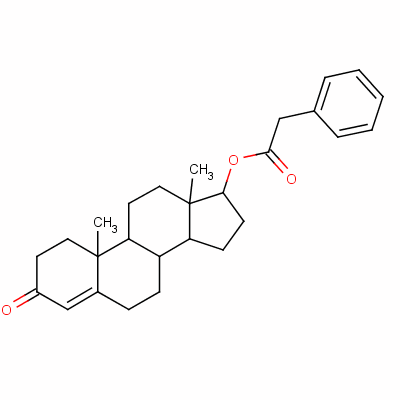The Role of Testosterone in Muscle Gain: Strategies for Boosting Levels to Accelerate Growth

Testosterone, often referred to as the "hormone of vitality," plays a pivotal role in muscle growth, strength development, and overall male physiological health. Among athletes and bodybuilders, enhancing testosterone levels, particularly its bioavailable form known as free testosterone, is a common strategy to accelerate muscle gains and improve performance. This article explores the intricate relationship between testosterone and muscle building, along with effective methods to naturally boost testosterone levels for rapid and sustainable muscle growth.
Understanding Testosterone's Role in Muscle Gain
Testosterone is an anabolic hormone that stimulates protein synthesis, the process by which amino acids are assembled into muscle tissue. Higher testosterone levels promote an increased rate of protein synthesis, leading to faster muscle growth and repair. Additionally, testosterone enhances nitrogen retention, which is crucial for maintaining muscle mass. Nitrogen balance is a delicate state where the amount of nitrogen intake equals its excretion; a positive nitrogen balance favors muscle growth.
Moreover, testosterone influences the androgen receptors in muscle cells, making them more sensitive to growth signals. This sensitivity boost enables muscles to respond more effectively to training stimuli, leading to greater gains in strength and size.
Natural Strategies to Boost Testosterone Levels
1. Intense Weight Training
High-intensity resistance training is one of the most effective ways to naturally elevate testosterone levels. Compound exercises, such as squats, bench presses, and deadlifts, stimulate the release of growth hormone and testosterone due to the significant muscle recruitment and stress they impose. Training with heavy weights and lower reps (e.g., 4-6 reps per set) has been shown to be particularly effective in boosting testosterone.
2. Adequate Sleep and Stress Management
Sleep deprivation and chronic stress are significant testosterone killers. Quality sleep is essential for hormone regulation and muscle recovery. Aim for 7-9 hours of uninterrupted sleep per night. Additionally, incorporating stress-reducing techniques, such as mindfulness meditation, yoga, or deep-breathing exercises, can help maintain optimal testosterone levels.
3. Balanced Diet Rich in Testosterone-Boosting Nutrients
A diet rich in essential nutrients supports healthy testosterone production. Foods high in zinc (oysters, red meat, pumpkin seeds), vitamin D (fatty fish, fortified foods), and healthy fats (avocados, nuts, olive oil) are particularly beneficial. Magnesium, found in leafy greens, nuts, and seeds, also plays a crucial role in testosterone synthesis.
4. Moderate Cardio and Avoiding Overtraining
While intense weight training boosts testosterone, excessive cardio can have the opposite effect. Moderate cardio sessions (e.g., 30-45 minutes of steady-state cardio 3-4 times a week) improve cardiovascular health without suppressing testosterone levels. Overtraining, characterized by persistent fatigue, decreased performance, and increased injury risk, can drastically reduce testosterone levels. Listen to your body, and ensure adequate rest and recovery periods.
5. Supplementation
Certain supplements can support healthy testosterone levels. D-Aspartic Acid (D-AA), a natural amino acid, has been shown to increase luteinizing hormone, which stimulates testosterone production. Tribulus Terrestris and Fenugreek are herbal supplements that may also enhance testosterone levels. However, it's crucial to consult with a healthcare professional before starting any supplement regimen, especially if you have existing health conditions or take medications.
Conclusion: A Holistic Approach
While boosting testosterone levels can accelerate muscle gains, it's essential to adopt a holistic approach that includes proper nutrition, targeted training, adequate sleep, stress management, and, in some cases, strategic supplementation. Remember, rapid muscle growth is not solely dependent on testosterone levels; consistency, dedication, and proper technique are equally important. By focusing on these key areas, you can optimize your body's natural ability to build muscle and achieve your fitness goals.
